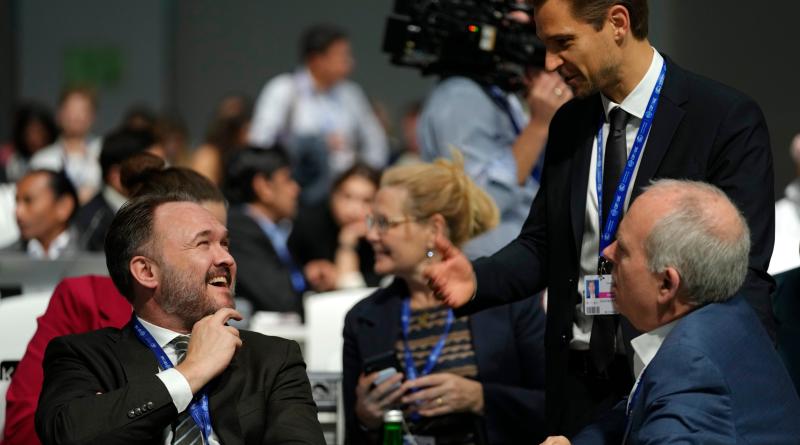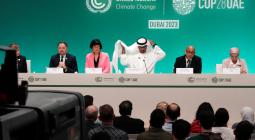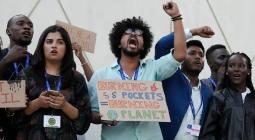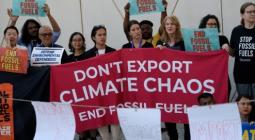COP28 Climate negotiators urged to reach a consensus on curbing warming

Negotiators have been urged to narrow down their options and agree on how to save Earth from disastrous levels of warming as the clock runs down on United Nations climate talks and the summit's president remains determined to finish up talks by Tuesday.
“Now is the time to shift gears and get to consensus,” COP28 President Sultan al-Jaber said in a plenary session late Saturday.
There some were signs negotiators were moving forward Sunday: For the first time since the talks began 11 days ago, a draft agreement on global adaptation goals — which will determine how poor countries will brace themselves for weather extremes worsened by climate change from drought to deluge to more intense storms — was released.
The draft text expresses concern over the gap between the money needed for adaptation and how much countries are getting, but it doesn’t say exactly how much money is needed for the world to adapt to climate change.
One option in the draft proposes an assessment of each country's vulnerability to climate change by 2025 and to establish early warning systems for extreme weather events by 2027. Another option is for countries to come up with national adaptation plans and implement them by 2030.
Draft texts on the Global Stocktake — the part of the negotiations that assesses where the world is at with curbing warming and how countries can stick to climate goals — were still stuffed with several options on language about how to phase-out planet-warming fossil fuels.
Dan Jorgensen, Denmark's environment minister and one-half of a pair of ministers in charge of the global stocktake, urged countries to “start focusing on key priorities and show flexibility so that we can start to down and eliminate options.”
Shantal Munro-Knight, a climate negotiator for Barbados, said motivation to get a strong deal among countries was high.
“I don’t think anyone wants to go away from the COP without a really ambitious program, and that’s where I think everybody is. You didn’t hear negative pushback too much because we are all in that moment."
But Marshall Islands Climate Envoy Tina Stege acknowledged “there is a lot more work that needs to be done. The presidency has a lot on its plate and we don’t have a lot of time."
Sticking points are along familiar lines for negotiators from countries who want to see strong language on slashing fossil fuel emissions and countries that are hesitant to have forceful language on the issue as they continue to develop their oil, gas or coal industries.
“It’s very clear that there is a group of countries here that don’t want to phase out fossil fuels," said German climate envoy Jennifer Morgan. Small island states, Latin American countries and European countries are pushing for a phase-out, but other nations are “still far apart.”
“It’s going to be very difficult,” Morgan said. "I’m a bit worried."
China’s climate envoy Xie Zhenhua called this year’s climate conference the “most difficult” of his long career. He said on Saturday that the contentious fossil phase-out issue could be solved in one or two days.
Negotiators are aiming to find a way to limit warming to 1.5 degrees Celsius (2.7 degrees Fahrenheit) since preindustrial times, in line with what was agreed in the historic 2015 Paris agreement.





